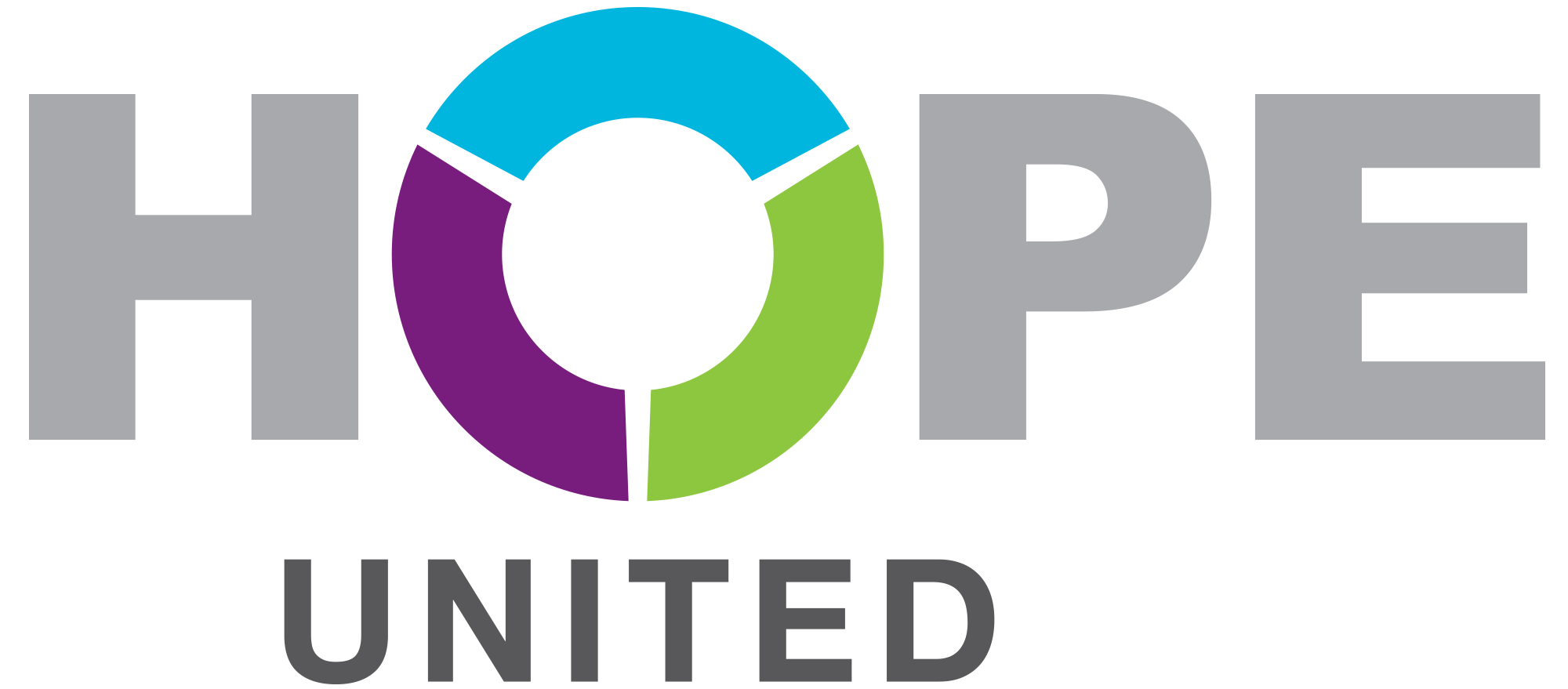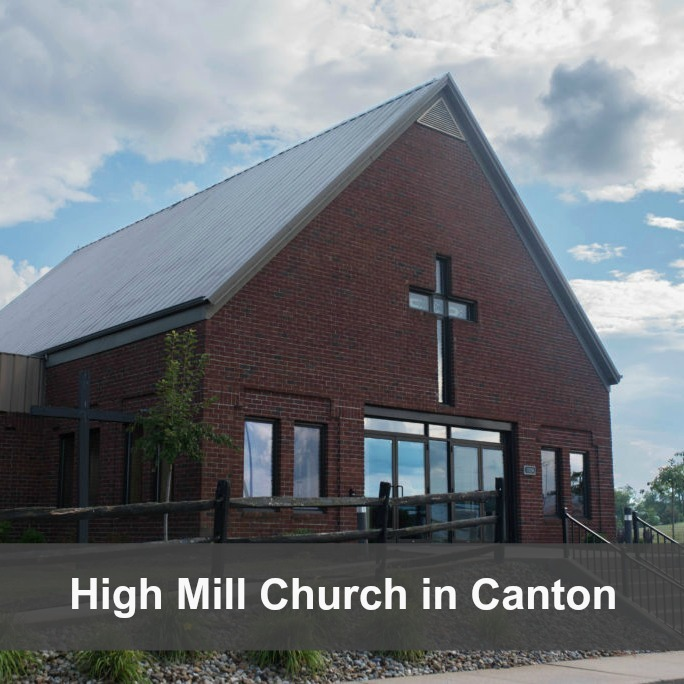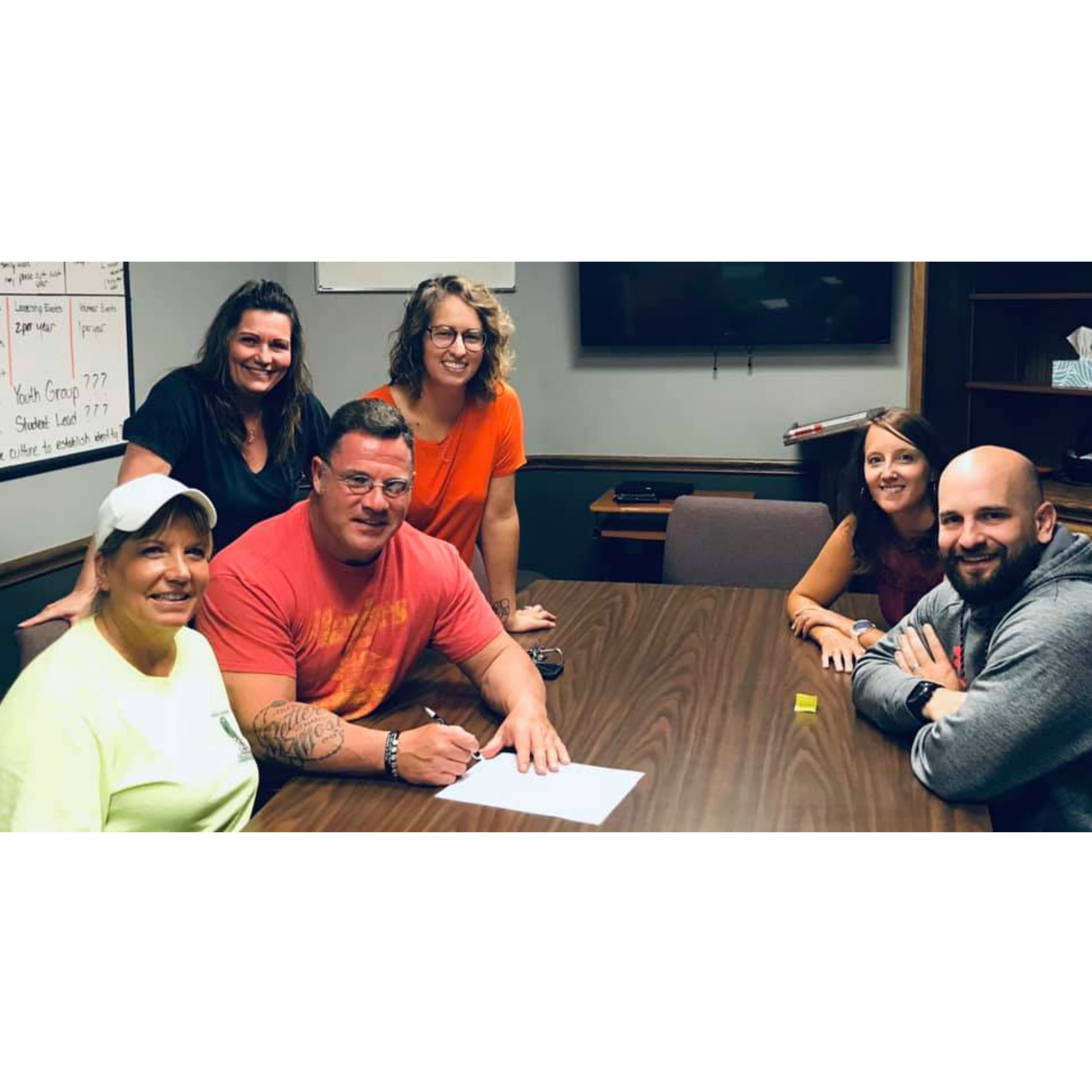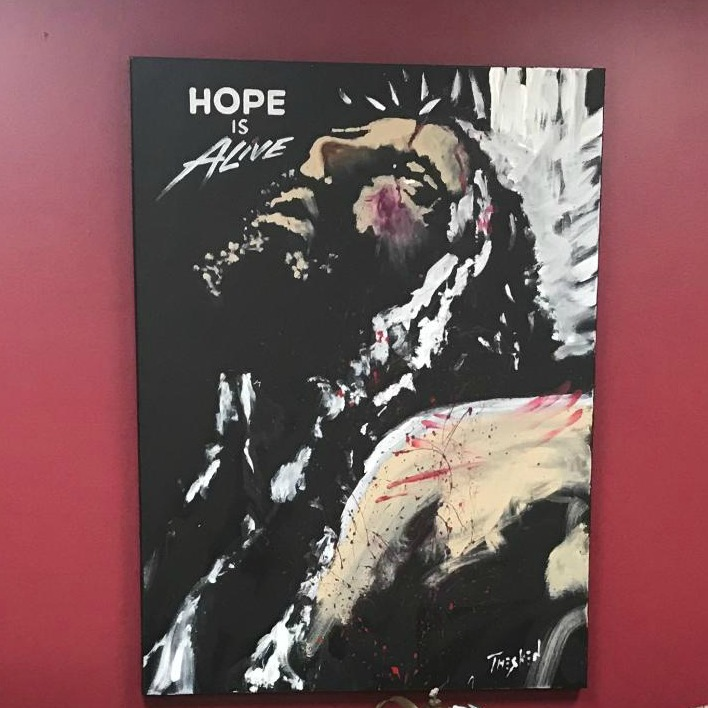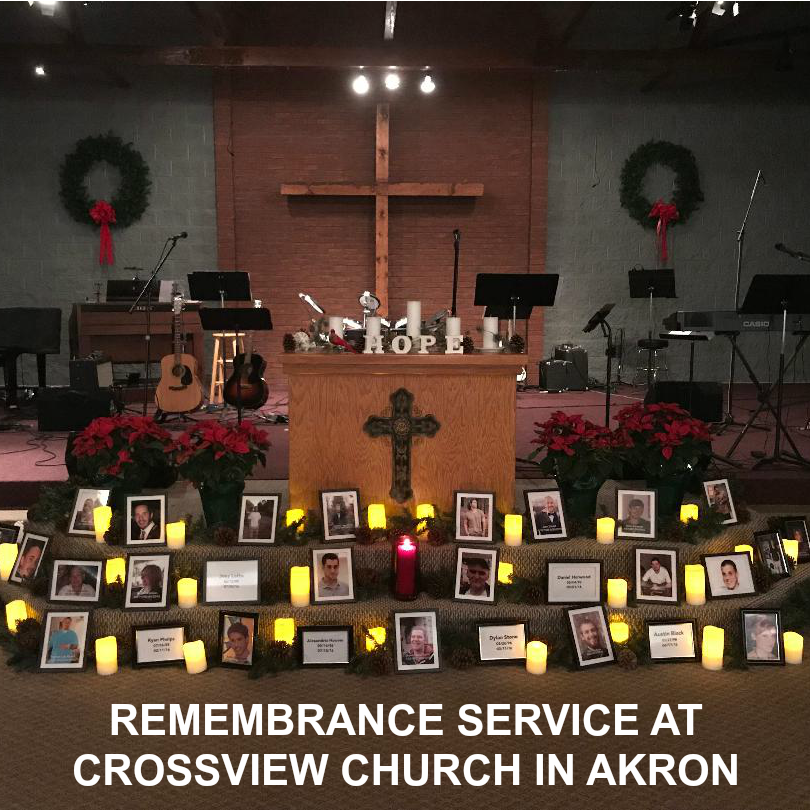The Church and The Epidemic
“...and when the man saw him who was hurt he had compassion on him....Then Jesus said “Go and do likewise.’” ~ Luke 10:33,37 from the Parable of the Good Samaritan
Along this journey of existing as a nonprofit that is trying desperately to bring hope to an addiction epidemic that is crippling our communities, our state, and our nation, we have come to the realization that real change, real POSITIVE, life altering change is never going to happen if we sit back and wait on the government to help. It’s just not. Real change is going to happen right here, right in our communities - because we are the ones who are feeling the wrath of addiction – of an opioid epidemic initiated by greed and the all mighty dollar.
But who in our community should step up? Should it be left to the families who have been impacted? How about the businesses that have financially felt the drain from an epidemic that has wreaked havoc on our towns? Couldn’t we make a case that everyone in the community is impacted in some way, shape or form by the opioid crisis? Ohio had the second highest rate of drug overdose deaths involving opioids in the U.S. in 2017, more than 400,000 people have died from a drug overdose involving opioids since 1999, and according to a recent study, the economic burden of the crisis in the United States was determined to be at least $631 billion in just a three year span. It is difficult to sometimes find the support that is so desperately needed, but there is one sector of our community that I think should be an inevitable resource of hope for those devastated by addiction: The Church.
It seems like an obvious answer. It really does. But some may feel that many churches are too quick to brush the word addiction under the rug, to pretend it doesn’t exist between their hallowed walls. I had the opportunity to sit down recently with Pastor Noah Schumacher of High Mill Church of the Resurrection in Canton and learn why so many churches aren’t ready to address this issue. Here was our mind-opening conversation:
Me: Tell me why you partnered with Hope United to offer space for our new relapse prevention programming that will begin soon in Stark County.
Pastor Noah: “I always think – how cool would it be to be a church that Jesus would want to attend. So what I always imagine is – would He walk into our church and say, ‘You got it, you’re doing it right.’ Or would He walk in and flip the tables over like He does in the temple in one of the gospel stories?
Jesus was radical in making wrong things right. As a pastor of a church in Canton, we believe the church should be doing that same thing – making wrong things right.
So, when we had the opportunity to say we have offices for Hope United – to us that is one step closer to making wrong things right. Because we then get to partner in doing that kind of work with addiction.”
Me: Pastor Noah, what do you see as the biggest challenge in getting churches involved in addressing complicated, messy issues such as addiction.
Pastor Noah: “The biggest challenge, and I hate saying this, but many churches are protecting the bottom line – the bottom line financially, the bottom line culturally, a bottom line, you know, ‘we want to protect our image because we want to appear like this’…..
But really, if the mission of the church is to reach out to the community and that’s how you protect your bottom line then you are completely divorced from the actual goal of what Jesus intended to do. The goal of Jesus was always meant to be this bridge into community, but not just the higher-ups, the elite, but He was breaking down barriers…and walls to reach people that were stigmatized, people that were put in boxes by the higher-ups of His day.
What should the natural ethos of the church be?
~ Reach people who are stigmatized
~ Reach people who are in corners, marginalized and broken – who most of society are looking down upon.
And here’s the saddest part of this story:
So people who are struggling with addiction are probably the top tier group that is facing that stigma right now. (And I would add in people who are struggling with prostitution.) The church turns its nose up at a lot of these people……People who are battling, trying to get out of addiction….and what we do is we want to resort back to our safe enclave as the church and say ‘thank goodness, our hands are clean’….and ‘we have a beautiful environment here, and it’s not messy, and we’ve got to polish our steeple and our stained glass and we are doing the mission of Jesus.’
Well – no, you’re not.
You’re actually doing the opposite.”
Me: How can you encourage individuals and families who are living with a person with a substance use disorder?
Pastor Noah: “I read a book the other day (Becoming Human by Jean Vanier), and it said,
“The definition of love is to see what a person was always meant to become.”
So, when you truly love people, you need to see past whatever the battle is, but you see what God is helping them to become and you help them through that journey. I’ve noticed the way that Michelle (my wife) and I think is sometimes described as beautifully naïve, because we’ve always had the assumption that if you follow Jesus, then those who happen to have an addiction – those are the people you want to come into contact with to walk beside, to have phone calls with, to have coffee with, or to be accountability partners with….and to help funnel to organizations like Hope United. To me it’s a no-brainer.”
Me: In your opinion, what are the most important things you can offer to an individual who is battling with addiction?
Pastor Noah: “I always think the biggest things you can give anybody, any one person in the world, are two things: value and worth. When you can show someone their value and their worth in the eyes of God, I think that is one of the greatest medicines to a broken soul you could ever give…I believe it really does lift up a person to a whole new place where they feel this encouragement and empowerment.
(On the flip side), Coldly telling someone ‘you’re a sinner’, ‘hey, you’re not doing this right’… I don’t think that is what Jesus had in mind. Jesus called for repentance and a commitment to a new life but He gave all people value, worth, and hope no matter their history or actions.”
Me: What is currently lacking in the Christian faith, in your opinion?
Pastor Noah: “We have an ala carte Christianity. This is where we pick and choose what we want and what feels good.
So here’s what people do:
They go down the line of all the possible ways of being a Christian (signaling with his hand making checkmarks):
‘I want a community that makes me feel encouraged.’
‘I’ll take that.’ (says the ala carte Christian)
‘I want a community where I have friendships and I’m challenged by the word of God.’
‘I’ll take that.’ (says the ala carte Christian)
But if you have this part over here (signaling with the other hand and seemingly pushing something to the side)….
‘But I’m going to be with people who are being open about their battle with heroin (or pornography, etc..). Well…..that just seems a little bit too much.’
‘I’ll just keep that one there’. (says the ala carte Christian)
…..’But I’ll take this good part and the good worship team.’
(Pastor Noah signals another checkmark as if this too is acceptable to the ala carte Christian.)
That’s what we are doing today. That is not Christianity and that is not at all what the church should be.”
(Pastor Noah continued on…)
“Many churches have this mindset - this is what dictates if you belong: (begins drawing picture)
If you believe the way we do….
If you dress the way we want you to…
If you act the way we want you to….
If you talk the way we want you to…..
Well, then you can squeeze in and you belong.
That’s how you are part of the church and that’s how we value you. If one of these doesn’t match up, then we struggle to show you the worth and the time that shows you that you matter to us. This was the way of the Pharisees and the way of the Sadducees. This is how they dictated who belongs and who doesn’t’.”
“What we see in the gospels is totally different. Here is what dictates belonging in the gospels: (begins drawing new picture)
We have individuals at all different places and what it means to belong in the community of God is that you are going in one direction – which is closer to Jesus.
You might have people who are real close, you might have some who are further away. You might have some who just got done doing their last dose of heroin, but they know that that they need hope and they need to find Jesus.
As long as they are coming this direction, then guess what? They belong just as much as this person (the person closest to Jesus) …because the direction they are walking is the same way.
This is how you belong.
…. This person will put their arm around that person (pointing to the people in the second illustration) and say – ‘I’ll walk you closer.’
That is what Jesus wanted.”
Wow, I must say – Pastor Noah nailed it. We need the Church in this fight against addiction. There are countless families hurting and broken hearted…maybe right in your church. Christianity is more than just attending Sunday service, it is more than just tithing, it is more than making sure all appearances look good to those around you. Christianity, and following Jesus, is about compassion, showing mercy; it’s about accepting individuals who are stigmatized and marginalized and offering them hope. It’s about having a heart for serving others and offering love when no one else will. It’s about a belief in redemption and a belief that no one is too lost to be found.
We are grateful for the churches that have chosen to walk alongside Hope United in this fight. We have been hosting The Well support group for the past 3 years for families who have lost a loved one to addiction thanks to Pastor Lennie McKinney and Crossview Church in Akron offering space for Hope United to lead the meetings each month. Pastor Noah Schumacher and High Mill Church of the Resurrection in Canton recently partnered with Hope United by providing office space for our organization to begin counseling services and relapse prevention programming by the end of 2019. High Mill Church will be our home office until construction is complete on Tyler’s Redemption Place, Ohio’s first Relapse Prevention Wellness Center in the Fall of 2020. We are so excited to begin our new programming and other offerings such as a weekly recovery support group called Everlasting Recovery that will be led by Mike Schleis beginning Thursday, November 7th.
We are so thankful for Pastor Noah and High Mill, as well as Pastor Lennie and Crossview Church, for believing in hope for individuals and families afflicted by addiction. And we invite fellow Christians and the Church to Stand United with us and help be the change we need in our communities.
Together, WE ARE HOPE UNITED.
To learn more about The Well support group, our upcoming recovery group meetings, our future relapse prevention programs, Tyler Redemption Place, or our ongoing fundraising for Ohio’s first Relapse Prevention Wellness Center, please visit our website.
